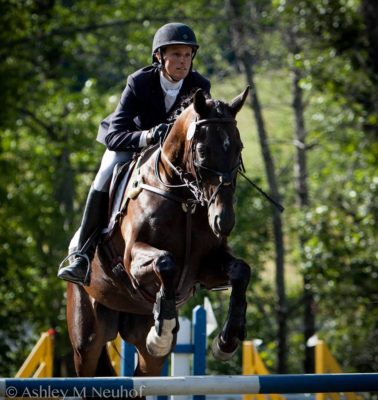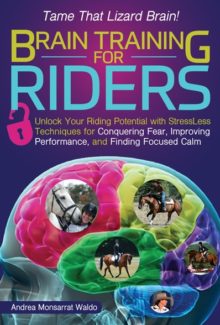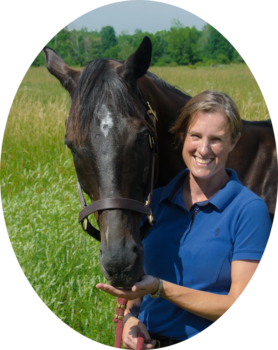
Photo credit: Ashley Neuhof. Used with permission.
It’s been a whirlwind three weeks. I rode in a clinic with an Olympian whom I’ve looked up to for forever, who nailed me on my weaknesses with amazing speed and accuracy. It was incredibly helpful, and equally humbling. Right afterward, Chauncy and I tackled the intermediate course at Millbrook, and then at GMHA. Our results were checkered, to say the least. I’ve racked up a ridiculous number of penalties in all 3 phases in the past two weeks, along with an Elimination—on cross country no less, where we can almost always count on going clear! I’m frustrated and disappointed in a lot of ways, but strangely enough, it doesn’t feel like failure. Well, not 100% true—it feels that way if I think of how my horse’s USEA record looks at the moment, and what that would mean if I tried to sell him tomorrow. But I think I’m finally believing in my gut what I know in my head: that there are many definitions of success, and that the scoreboard doesn’t tell the whole story.
In some ways, being a mid-level professional trainer is such a weird, isolated place to be. I bring along kids and adult amateurs from the beginning through the occasional preliminary student. I teach some clinics, but I’m not one of those clinicians that people know in a first-name-only way. I’m not training the members of the young riders’ team, and few people really acknowledge those of us who put the basics on those kids before they sought bigger names to ride with. I have one upper level horse, purchased (with borrowed money) to teach me the ropes, not to bring home ribbons. If we (or more accurately, if I) blow it at an event, it’s weeks or even months before I can get out there and try again, unlike many others in my division who can simply get on their next big horse in half an hour and have a do-over. The amateurs think it’s unfair for me to play in their sandbox because I’m a professional, but the open divisions I ride in are full of red coats with the team logo on them and horses with Cooley and Fernhill in their names. Sometimes I long for a slightly more level playing field, just to give my ego a break once in a while from being at the bottom of the scoreboard!
Before I get accused of whining or being ungrateful, let me say that I wouldn’t trade my life for anyone else’s. I love teaching, I love my students, and I love training green horses. I’m grateful every day for my horse who’s teaching me to jump all the big things, even if I sometimes want to put him by the side of the road with a “free” sign around his neck after the dressage. When I do poorly in the standings at an event, I haven’t lost my spot on the team or disappointed someone who has invested tens of thousands of dollars in my horse. I only answer to myself, and to my goals and aspirations. What this does mean, though, is that I have to hold on very tightly to my belief in my choices and my journey. If I don’t, I can get swept up in the prevailing cultural belief that success means winning and advancing and going to the Olympics—and that nothing else has worth or value. If I stay there for very long, I end up demoralized and discouraged, and my mistakes start to make me feel like a failure.
For me, this is about way more than “positive thinking” or putting a Susie Sunshine spin on things. I know without a doubt that the failures are vital to making me a better rider, which is what I want more than anything. Getting eliminated last weekend exposed a hole in my training. I got help, figured out what went wrong, fixed the problem, and now have a plan for filling that hole completely. Neither Chauncy nor I got hurt or scared in the process, so that’s a success. I went from a choppy, hot mess of a stadium round at Millbrook to a really smooth one the following week. We still had rails, but the quality of the ride was night and day. Success. Our dressage at GMHA was an utter disaster. We finished the test, so we got to jump. Success? Hell no. Like I said, I don’t do Susie Sunshine. It sucked, it was humiliating, it was completely awful. But I had friends and supporters who sympathized, and who gave me a glass of wine afterwards. (Maybe more than one.) Sometimes that’s the best you can do with a crappy ride—commiserate with people who care about you, and look forward to the next time. I don’t get to do next time five minutes later, the way Buck Davidson so famously does with 8 or 10 horses every weekend, but at least I get to do it. And for me, that’s something that will get me out of bed in the morning, excited to do it all over again today.
“I have not failed. I’ve just found 10,000 ways that won’t work.”
― Thomas A. Edison



